You are currently browsing JMECE Lab’s articles.
More information at: http://thefestival.eu/

Information society commissioner Viviane Reding said of the letter: "People's privacy and the integrity of their personal data in the digital world is not only an important matter: it is a fundamental right, protected by European law."
Source: EuObserver [ edited ]
by: LEIGH PHILLIPS
EUOBSERVER / BRUSSELS – The European Commission is worried that the UK is not taking online privacy rights seriously and has warned London that it will take the government to court if it does not crack down on an controversial advertising company that gathered information about internet users’ surfing habits in secret.
Behavioural advertising is one thing and snooping on websurfers is another, believes the commission. Some find it extremely disconcerting when Facebook or Amazon recommend a concert or a book or a CD that one of their algorithms has identified as a product they might like – and then it turns out that they would actually like it. Others find such services quite useful and do not care about any supposed threats to privacy. However, in both cases, users opt in to such targeted advertising.
In 2006 and 2007, Phorm, a US-based advertising software outfit, trialled a behavourial advertising service on the internet customers of service provider BT that it marketed to clients as a way to farm data about their shopping predilections. And it did so in secret without the users’ permission. At the time, Phorm claimed that deals it was making with major internet service providers (ISPs) in the UK would have given them access to the surfing habits of 70 percent of British households with broadband.
“As you browse we’re able to categorise all of your internet actions,” boasted Phorm executive Virasb Vahidi. “We actually can see the entire internet.”
BT and Phorm’s move provoked such an outcry – World Wide Web creator Tim Berners-Lee attacked Phorm for its activities – that the advertising firm has had to abandon the UK marketplace. Despite complaints by MEPs to a range of UK government departments and the police, British authorities refused to act, believing the company to have won implied consent from users. In April of this year however, the EU executive warned that this constituted a breach of privacy rights and EU law and that if action was not taken to prevent such activity, Brussels would take the UK government to court.
This week, the commission wrote to the UK, saying that its response to their concerns was not satisfactory. The government now has two months to make a further response, after which, if Brussels remains unsatisfied, London can be taken to the European Court of Justice. Information society commissioner Viviane Reding said of the letter: “People’s privacy and the integrity of their personal data in the digital world is not only an important matter: it is a fundamental right, protected by European law.”
“I therefore call on the UK authorities to change their national laws to ensure that British citizens fully benefit from the safeguards set out in EU law concerning confidentiality of electronic communications.” Ms Reding believes that the government is in breach of the European E-Privacy Directive and the Data Protection Directive.
The question of whether behavioural advertising more widely, such as is used by online retailers or social networking sites, is a breach of privacy, is not within the purview of the commission however, as the EU laws concerned only relate very narrowly to the activities of network services and not websites themselves. The UK Home Office Home Office said in response to Brussels’ concerns: “We are firmly committed to protecting users’ privacy and data.
“We are considering the commission’s letter and will respond in due course.” Joe McNamee, of European Digital Rights, a Brussels-based online civil rights organisation, explained the difference between what social networking sites and online retailers commonly do and Phorm and BT’s activities.
“While there are concerns about the extent to which consumers know exactly what companies such as Facebook or Amazon are doing with their data, they at least have the option of choosing a different social networking service or bookseller. When it’s your ISP – in this case BT – I have no choice over this. I don’t even know it’s going on.

Last year, the European Union committed to reducing its emissions by 20% unilaterally by 2020, regardless of what other countries do.
Source: Euractiv
Europe will attempt to reassert its global leadership on climate change … with EU leaders set to back emissions reductions “of at least 80-95%” for the developed world by 2050… The global community is currently engaged in negotiations to agree a successor to the Kyoto Protocol on climate change, which expires in 2012.
The latest round of UN climate talks in Bangkok ended with little progress, leaving negotiators preparing for the Copenhagen summit in December on the assumption that not every detail will be agreed. Last year, the European Union committed to reducing its own emissions by 20% unilaterally by 2020, regardless of what other countries do.
The target would be raised to 30% in the event that other developed countries such as the US agree similar cuts and emerging economies such as China and India slash their own emissions by 15-30% below business-as-usual by the same date. The EU’s pledge comes as part of international negotiations on climate change to take place in Copenhagen next month but will only become effective if other developed nations follow suit.
“The European Union is at the forefront of efforts to fight climate change,” the draft summit statementPdf reads. “It supports an EU objective […] to reduce emissions by 80-95% by 2050 compared to 1990 levels. Last year, the European Union committed to reducing its emissions by 20% unilaterally by 2020, regardless of what other countries do.
This week, EU leaders will reiterate their pledge to raise this target to 30% “provided that other developed countries commit themselves to comparable emissions reductions” and that emerging economies such as China and India “contribute adequately” according to their emissions levels and “capabilities”. “The EU’s commitment to step up to the 30% target hinges entirely on other countries making comparable commitments,” an EU diplomat stressed before the summit meeting.
EU’s climate leadership a hoax?
However, the EU’s self-acclaimed leadership on climate change came under fire from Sandbag, a UK-based campaign group, which said the 2020 pledge was essentially a hoax. “Far from leading the world with ambitious reduction targets, the EU is hiding behind clever accounting and in fact pledging to do very little,” the group said. According to Sandbag, this is because emissions cuts in Europe to date have mainly come from unrelated macro-economic circumstances, including post-communist de-industrialisation in Eastern Europe in the early 1990s. “Using a 1990 baseline for cutting emissions makes Europe’s effort look unfairly good compared to other parts of the world,” the group said.
“When considered in this context, the EU’s conditional offer of a 30% reduction by 2020 is in reality only a 10% reduction in domestic emissions from current levels. By 2010, we will have already achieved a 10% cut against 1990 and half of the remaining effort to meet the 20% target is likely to be met through purchasing permits from overseas, giving a domestic reduction of only 10% over a decade.”

From West to East, and vice-versa
Source: EuroParliament [edited]
This year marks the 70th anniversary of the Molotov-Ribbentrop pact between Hitler and Stalin to split parts of Central and Eastern Europe and the Baltic States between them, but it is also 20 years since the fall of the Berlin Wall. Opening a conference commemorating the pact, European Parliament President Jerzy Buzek focused on how far Europe has come. He said to those present that “we live in a different Europe today of which the essence has to be solidarity”.
European Commission Vice-President Jacques Barrot told the conference that the pact had created “a terrible conjunction of two totalitarian regimes – Nazism and Communism”. The event was organised by the National Parliaments of the Baltic States in the European Parliament on 14 October.
“A common historical narrative
The conference focused on the need to unite Europe’s histories and consolidate understanding of the past. “More than ever we need to speak with one voice when we talk as the EU to the outside world,” Mr Buzek said. Aivars Stranga, a historian from the University of Latvia, said that the lack of shared memory causes problems of understanding and can even be an obstacle in creating a common future. “The European Union should have a common historical narrative” he said. Speakers called for international cooperation to come up with ways to increase knowledge about history and Estonian MEP Mart Laar called for a new history manual for schools.
Destruction of the Wall – destruction of a prison
The Berlin Wall fell 20 years ago, but some speakers wondered whether the West really understands what happened in the countries behind the wall during the previous 50 years. Lithuanian MP Vytautas Landsbergis said that “the build-up of two Europes – that of democracy and that Soviet one – was finalised with the appearance of the grim and bloody Berlin Wall.” He said that the countries which joined the EU five years ago were “in an enormous prison that extended over Central and Eastern Europe and contained hundreds of millions of captive people”. He went on to say: “The destruction of the Wall was also a destruction of a prison and a denouncement of the political-cultural division of Europe.”
West and East – a meeting of minds?
Many speakers said that Western Europe doesn’t understand the consequences of the dark period of Communist rule for millions of people on the other side of Iron Curtain and the crimes committed under that regime. The problem arises when trying to compare two totalitarian regimes, said Kazimierz Woycicki of Warsaw University. “We can’t allow any comparison between the Holocaust and Stalin’s regime” he said. Camilla Andersson from the Institute for Information on the Crimes of Communism in Sweden said there is knowledge gap in the West, with many people thinking that the Berlin Wall was built by the Nazis. Conference members said that it is important to share experiences and opinions in the EU.
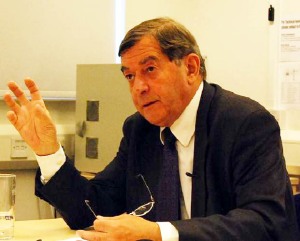
he figures reveal that a staggering 83% of those surveyed in Britain said they knew little or nothing about the EU, four out of five saw the value of the E.U in protecting human rights, and in dealing with climate change, terrorism and the financial crisis.
By Geoff Martin,
Leeds University 19th October 2009
One point about the Irish vote on the Lisbon Treaty was straightforward. It was about the availability of FACTS. If people have the facts they can see for themselves the value to their livelihoods of a European Union which provides security through safety in numbers. The same point has also emerged in a recent Eurobarometer survey. Whilst the figures reveal that a staggering 83% of those surveyed in Britain said they knew little or nothing about the EU, four out of five saw the value of the E.U in protecting human rights, and in dealing with climate change, terrorism and the financial crisis.
Indeed the same survey signalled new support for the E.U in a number of fundamentally important areas. 67% were in favour of the single market; three in five that the environment was cleaner and 58% that in the EU the UK had more clout in world trade negotiations. Significantly 71% said they would care, if the above benefits were lost in the event of the UK pulling out.
I take this to mean that left to decide for themselves, most people in the UK would prefer to remain in the EU in spite of continuing Europhobic hysteria from the right wing media. Of course people will not be left to decide by themselves. The current plans for a wrecking referendum by the Conservatives in the UK on Lisbon, if the Czech President holds out on signing the Treaty, places Britain in the eyes of most of its continental colleagues, in the anti European court of opinion. It is not the Lisbon Treaty they are against. It is the European Union as such – and the only honest referendum in this country would be IN or OUT. Referenda on institutional detail are blunt instruments as the Irish have found out but on matters of fundamental principle, such as membership, they can be a useful sounding board before Parliaments finally decide.
Another point is worth putting into perspective. THE MESSENGER IS IMPORTANT.
It is reported and widely believed that the involvement of the United Kingdom Independence Party in the poll in Ireland was responsible for a swathe of voters moving to the YES camp. The sheer political ignorance of UKIP believing that they could influence the Irish outcome was of interest in itself. UKIP represents the worst features of an outdated imperial mentality – the English telling the Irish how to vote. This potent mixture backfired badly.
The identity of the European messenger is also important in the UK as it is in each one of the other Member States. Who is the messenger in the UK ? Certainly not the Minister for Europe or the Foreign Secretary – or indeed the Prime Minister. At present and for some time the messenger in Britain about the European Union has been the hard core of reactionary English isolationists. They are backed by the anti EU media some of whom would have us believe that if Tony Blair becomes the first full time President of the European Council, both H.M. the Queen as well as the Prime Minister would be required to pay him due respect as the President of the European Super State.!
If the messenger is not a national or regional opinion former or politician the message is less likely to be listened to. That is why the Lisbon Treaty is important in more than the areas most often mentioned – the necessity for reform following enlargement, the need for a President of the Council, a Foreign Affairs personality etc.
The Lisbon Treaty for the first time requires the full involvement of national parliaments in the evolution of European Union policy. At a stroke this requirement places the public perspective in a national context. It replaces mere parliamentary scrutiny by the formal requirement to express a national parliamentary opinion on each piece of proposed legislation, measure by measure. This will mean that the national media will have the option to report European matters from the House of Commons. No longer will national media rely wholly on locally hired stringers in Brussels rather than pay British correspondents to be there and then twist their copy in the newsroom for domestic consumption. They will report from the House of Commons directly. In doing so it will become more difficult for the anti European media to sensationalise, to lie or to misrepresent.
Ministers will be required to come out of hiding and instead of blaming someone else for voting a measure into law, usually the ambiguously named Council of Ministers. They will be required to shoulder their responsibilities and be open about how they intend to vote. It is worth remembering that in contrast to accepted public opinion, during the passage of the Single Market legislation, British Ministers were voting 90% of the time in favour of all legislation and the pattern has not changed.
In recent years we have heard little about what Ministers think on any EU subject. When was the last occasion Ministers responsible for informing their national public audiences met together to discuss how to stop the rot of misinformation and misrepresentation in their countries? Never I think, is the correct answer.
The Lisbon Treaty also raises the question about who should be the source of information. Who should the principal messenger be, in these new circumstances?
A rebalancing of the role and responsibilities of governments and the institutions is now necessary. The Commission tries too hard. The more it earnestly seeks interest from the public and tries its best to convince, the more it unconsciously builds a greater reaction against itself.
The more the institutions try too hard to be listened to, the more they elicit reactions against themselves and the less Ministers are likely to support them. Vice President Kallas is right when he calls on government Ministers and national parliaments to begin to take their responsibilities to their people to explain Europe and in doing so, to win the argument.
In contrast, the effort displayed by consecutive British governments for providing the British public with any meaningful explanations about the vital developments within the EU have been disappointing to say the least. Governments have always had a responsibility to defend the national interest while at the same time working for greater European Union influence both at home and abroad. They have excelled at the former but abrogated responsibility for the latter. The institutions, in particular the Commission, have been unfairly damaged as a result. The Lisbon Treaty, if it is signed soon, together with the involvement of national parliaments for the first time, can become the long awaited step change in public awareness of Europe. If not a British wrecking referendum will do irreparable harm to Britain.
Text by: Geoff Martin is Special Adviser to the Commonwealth Secretary General on Strategic Relationships. He was head of the European Commission in the U.K. from 1993 until 2002. He was the head of the Information Services of the European Commission in South East Asia in the mid eighties and inaugural Head of the European Commission in N. Ireland 1979 – 1985. He is working currently on the Joint African Union/European Union Strategy for Africa with a special interest in the role and responsibilities of the media in supporting Governance.

The EGNOS Open Service is available to any user equipped with a GPS receiver that is compatible with satellite-based augmentation systems. The service, one of there being made available, is provided free of charge without any guarantee or resulting liability, the Commission stated.
SOURCE: GSA
EGNOS is ready to use as an open and free satellite-based navigation service, the European Commission announced today.
The improved accuracy of Europe’s first satellite navigation system ushers in a new era for location-based services on the continent. Businesses and citizens can use EGNOS-enabled receivers for tasks that require greater precision, such as crop spraying, tracking vehicles and pedestrian navigation.
Antonio Tajani, the European Commission’s Vice-President for Transport, said: “This opens the door for European businesses and citizens to benefit from the myriad of better applications and new opportunities made possible by more precise navigation signals.”
EGNOS, a satellite-based augmentation system, represents Europe’s first contribution to satellite navigation. It is also a precursor to Galileo, the global navigation satellite system that Europe is developing.
EGNOS increases the accuracy of GPS signals over Europe to within two metres. GPS is accurate to about 10 metres. Augmentation systems correct GPS by taking into account atmospheric disturbances and other factors that may affect the integrity of the signals.
EGNOS can be used by the aviation sector once it is certified for Safety-of-Life services. © ESA
EGNOS can be used by the aviation sector once it is certified for Safety-of-Life services. © ESA
Benefits for businesses and Europeans
The EGNOS Open Service is available to any user equipped with a GPS receiver that is compatible with satellite-based augmentation systems. The service, one of there being made available, is provided free of charge without any guarantee or resulting liability, the Commission stated.
Most receivers sold in Europe today meet that requirement. Receiver manufacturers and application developers will be able to provide their customers with the benefits of EGNOS without requiring any authorisation or receiver- specific certification.
In announcing the availability of the system’s Open Service, the Commission noted that it will support the development of new applications in such sectors as agriculture, transport and personal navigation services.
For example, farmers can use EGNOS for spraying fertilizers on their crops more precisely, allowing them to save money and reduce any impact on the environment. In the transport sector, automatic road-tolling services are being developed using the increased precision provided by EGNOS. Blind people will be able to use EGNOS-enabled GPS receivers and services to more accurately navigate city streets.
More EGNOS services to come
The Commission is on track to provide more EGNOS services next year. A key milestone will be achieved in 2010, when EGNOS is expected to be certified for use by Europe’s aviation sector in compliance with the Single European Sky regulations.
The Commission will then declare the readiness of EGNOS’ Safety-Of-Life Service, which will provide a valuable integrity message warning the user of any malfunction of the GPS signal within six seconds. This integrity message is essential when satellite navigation is used for applications where lives are at stake.
The Commission also expects to launch the EGNOS Commercial Service next year. This service is currently being tested by a number of European companies.
The Open Service and the Safety-of-Life Service are provided free of charge. The European Union is committed to the long term support of EGNOS, which will provide services alongside Galileo, when it becomes operational. For example, the Commission is working to extend the geographical coverage of the three satellites transmitting the EGNOS signal. While the signal currently covers most European states, it has the built-in capability to extend the coverage area to other regions, such as countries on the EU’s borders and North Africa.
Sending the correction signals
The EGNOS signal, which provides the correction data needed to make GPS more accurate, is transmitted via transponders aboard three geostationary satellites over Europe. About 40 positioning stations and four control centres are at the heart of the system’s network on the ground.
Through a contract with the Commission, the European Satellite Services Provider (ESSP) is charged with the operational management and maintenance of EGNOS. The contract between the Commission and ESSP SaS, which is based in Toulouse, France, was signed on 30 September and runs until the end of 2013. ESSP was founded by seven air navigation service providers in Europe.
EGNOS is a joint project of the European Space Agency (ESA), the Commission and Eurocontrol, the European Organisation for the Safety of Air Navigation. It was developed by a number of European businesses that compose the EGNOS Operator and Infrastructure Group.
Since 1 April of this year, EGNOS has been owned and managed by the European Union. The ESA continues its role as the system’s design and procurement agency through a delegation agreement with the Commission.

EU online sources ranked by research experts
Intute has just released a survey about EU sources and online use, which we very much advise you to take. You can visit it here: http://feedback.intute.ac.uk/eu2009/.
If you don’t know yet, Intute (http://www.intute.ac.uk) is a free online service that helps people to find the best web resources for studies and research. It groups millions of online resources in one place, and in contrast with Google the materials are not only ranked by number of searches, but also by subject specialists who review and evaluate resources.
Please fill in the survey and participate.
Source: EurActive
Czech President Václav Klaus again surprised friends and foes alike by signing his country’s Lisbon Treaty ratification today (3 November) at 15.00 CET, just hours after the Czech Constitutional Court had given the text its green light. The EU’s reform treaty is now fully ratified and is expected to enter into force on 1 December.
Klaus, a staunch Eurosceptic, announced he had signed the Lisbon Treaty at Prague Castle, just a few hours after the Czech Constitutional Court ruled that the treaty is compatible with the country’s constitution.
An hour later, he held a televised press conference during which he said he had expected the verdict to be in favour of the Lisbon Treaty. He said he respected the ruling but he does not agree with it.
“The treaty’s enforcement will limit the Czech Republic’s sovereignty, regardless of the Constitutional Court’s verdict,” he added, quoted by the Czech press.
Klaus lashed at the court’s judges, describing their behaviour as “obstructive” and their verdict as “politically motivated”.
According to EU practice, new treaties enter into force on the first day of the month after they are deposited in Rome. This means that the Lisbon Treaty could enter into force at on 1 December, with a new 27-member European Commission, a permanent Council president and a High Representative for Foreign Affairs being selected in the meantime.
Joseph Daul, Chairman of the EPP group, welcomed the news from Prague. “Europe can now move forward. The conclusion of the ratification process means that the treaty will enter into force without further delay this year. The treaty will allow effective European action in areas where solutions are urgent, such as the financial and economic crises, climate change and energy,” he said.
“I call on the European Council to nominate the College of the European Commission, the High Representative for Foreign Affairs and Security Policy and the president of the Council without delay,” Daul further declared.
The Swedish EU Presidency is widely expected to call an extraordinary EU summit to decide on the top jobs, most likely to be held on 13-14 November.
It took eight years of intricate negotiations for the EU’s new reform treaty to see the light of day, since EU leaders first debated its proposed reforms at the 14-15 December Laeken summit in 2001.

"The commission is closely monitoring the use of behavioural advertising to ensure respect for our privacy rights,"
Source: EUobserver [edited]
EUOBSERVER / BRUSSELS – There is a dark side to some of the impressive new online technologies that are appearing, from social networking to behavioural advertising to RFID ‘smart chips’, the European Commission’s internet chief has warned.
While such technologies offer great vistas of opportunity, the commission is monitoring their development “closely” for the very real potential threats to privacy they contain, information society commissioner Viviane Reding said on Monday at a debate on the future of the internet in Brussels.
The future of the internet contains pitfalls as well as possibilities, warns Brussels. Ms Reding threatened that if social networking sites such as Facebook themselves do not make moves to ensure the profiles of minors are kept private, she would intervene with legislation to force them to do so.
“Privacy must, in my view, be a high priority for social networking providers and for their users. I firmly believe that at least the profiles of minors must be private by default and unavailable to internet search engines,” she told the meeting in the European Parliament, organised by Icomp, an industry initiative backed by Microsoft to discuss the online marketplace.
“The European Commission has already called on social networking sites to deal with minors’ profiles carefully, by means of self-regulation,” she continued. “I am ready to follow this up with new rules if I have to.” But she said she worries about all users of social networking, not just children, and fears that most users of such sites are unaware of the dangers to their privacy.
“Social networking has a strong potential for a new form of communication and for bringing people together, wherever they are,” she said. “But is every social networker really aware that all pictures and information uploaded on social networking profiles can be accessed and used by anyone on the web?”
Advertising concerns
The EU’s internet chief also said that behavioural advertising – those ads that appear that seem to know exactly the sort of books or vacations or concerts you would be interested in – was “another privacy concern repeatedly mentioned to the European Commission these days.”
Behavioural adverts are able to do this by keeping track of internet users’ web browsing to better target them with advertisements. Ms Reding said that the EU executive was watching this development for infringement of privacy: ” European privacy rules are crystal clear: a person’s information can only be used with their prior consent.”
“The commission is closely monitoring the use of behavioural advertising to ensure respect for our privacy rights,” she added. “I will not shy away from taking action where an EU country falls short of this duty.” The commissioner also warned of the perils contained within the “internet of things” – the use of radio frequency identification (RFID), or smart chips, that could be attached to any product.
There is enormous potential from a world in which all mugs, containers, shoes or airplane parts are attached with tiny identifying devices. Analysts predict that common events that plague businesses and individuals such as running out of stock, product wastage, and theft. Losing your keys could be a thing of the past, if we know where a product is at all times.
But there are also great privacy pitfalls in such a world, noted Ms Reding. “I am convinced [RFID] will only be welcomed in Europe if they are used by the consumers and not on the consumers,” she told the crowd.
“No European should carry a chip in one of their possessions without being informed precisely of what they are used for, with the choice to remove or switch it off at any time.” “The “Internet of Things” will only work if it is accepted by the people.” Her speech also focussed on the need for a single online market for digital content, which she has repeatedly argued is fragmented, a competitive disadvantage for Europe when compared to the United States.
Before the end of the current commission’s mandate, she said, she and internal market commissioner Charlie McCreevy would publish a “reflection paper” over a set of possible legislative options to create such a single digital market.
Ms Reding would also like to see the development of a European Rights Registry to ease the digitalisation of books. Such a registry would aim to overcome the current problem of books republishing online books that are out of print, but whose copyright ownership remains cloudy.
Although the Luxembourgish Ms Reding has expressed an interest in returning to Brussels as part of President Jose Manuel Barroso’s second college of commissioners, it is not clear that if she returns, she would be awarded the same dossier. She underlined that in making her comments on the future of the internet, she did not want to “pre-empt the new commission.”
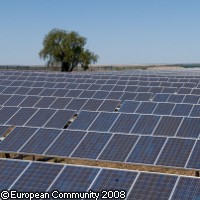
Money should be divided between key low-carbon technologies that can move Europe from 80% dependence on fossil fuels to 80% emissions cuts by 2050
Source: EurActiv [edited]
The European Commission revealed its long-awaited blueprint for tripling Europe’s energy research funding within the next decade, in a bid to shift monies towards supporting the transition to a low-carbon economy in the next EU budget. The EU executive calls for the energy research budget to be increased to €50 billion over the next ten years. This would require yearly flows from both the public and private sectors to jump from their current €3bn to €8bn, it calculated.
The Communication on Financing the Development of Low-Carbon Technologies sets out how this money should be divided between key low-carbon technologies that can move Europe from 80% dependence on fossil fuels to 80% emissions cuts by 2050. The research priorities were identified in the 2007 Strategic Energy Technology Plan (SET-Plan) that intended to reassert Europe’s competitiveness by putting declining EU energy research budgets back on track.
The financing plan, which was originally due out last year, was partly delayed due to the financial crisis, which required new thinking on how to reactivate growth, Energy Commissioner Andris Piebalgs told journalists. Furthermore, drawing up roadmaps for the various technologies took time, he added.
The final plan earmarks €6bn for research into wind energy, which the Commission believes could produce a fifth of the EU’s electricity by 2020. The money would help to fund developments offshore, where winds are stronger, by investing in next-generation turbines and new structures.
Solar energy would get €16bn for developing new photovoltaic concepts and large industrial concentrating solar power (CSP) installations to contribute 15% of EU electricity in ten years’ time. Bioenergy research would also get €9bn so that it could provide 14% of EU energy while respecting sustainability criteria.
In order to integrate renewables and implement the internal energy market, electricity grids would get €2 billion so that half of the networks can operate along a “smart grid” principle. Apart from renewables, carbon capture and storage (CCS) is set to receive €13bn for up to 12 demonstration projects. Nuclear research would also get €7bn for putting the fourth generation into operation.
The financing proposal also foresees €11bn for a ‘Smart Cities’ programme, in order to counter criticism that the SET-Plan disregards energy efficiency. Between 25 and 30 cities are to be upgraded with low-carbon houses and transport so that they emit 40% less greenhouse gas emissions in 2020 than they did in 1990.
In addition, the Commission is calling for more money for future breakthrough technologies, such as motors fuelled directly by sunlight or batteries which store power at ten times their current density.
Public partnering with private money
The Commission believes that public-private partnerships are the most credible way to go about funding energy research. However, it did not spell out how the financial burden should be shared between the two. Currently, energy research funding is 70% private and 30% public, excluding nuclear research. The EU executive argues that a “significant rise” in the public share will be necessary in the short term to give businesses incentives to work towards public climate and energy supply goals at a time of recession.
In projects where the risks are higher, public funding should assume a greater role, the Commission says. To optimise the level of intervention, it advocates the use of European programmes, particularly where there is a clear added value of EU-level action, for example in the case of programmes that are too expensive for a single member state to fund. Currently, 80% of public investment in non-nuclear energy research is made at national level.
Although the communication does not announce any new EU funds, it argues that “an increase in the proportion of the public investment at Community level may need to be one of the options explored in the budget review”.



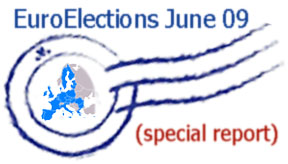
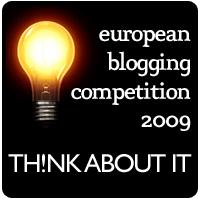


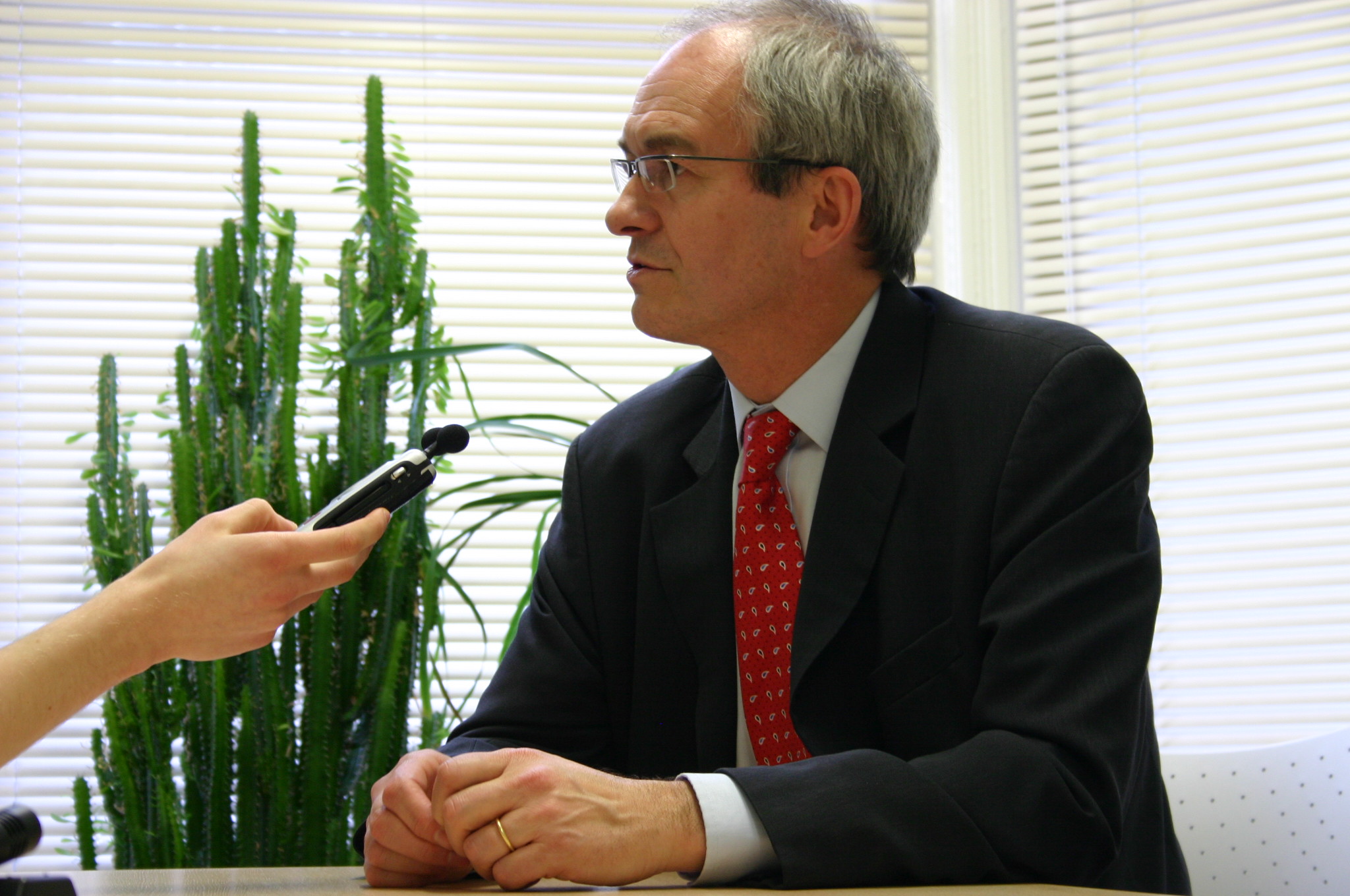
Recent Comments